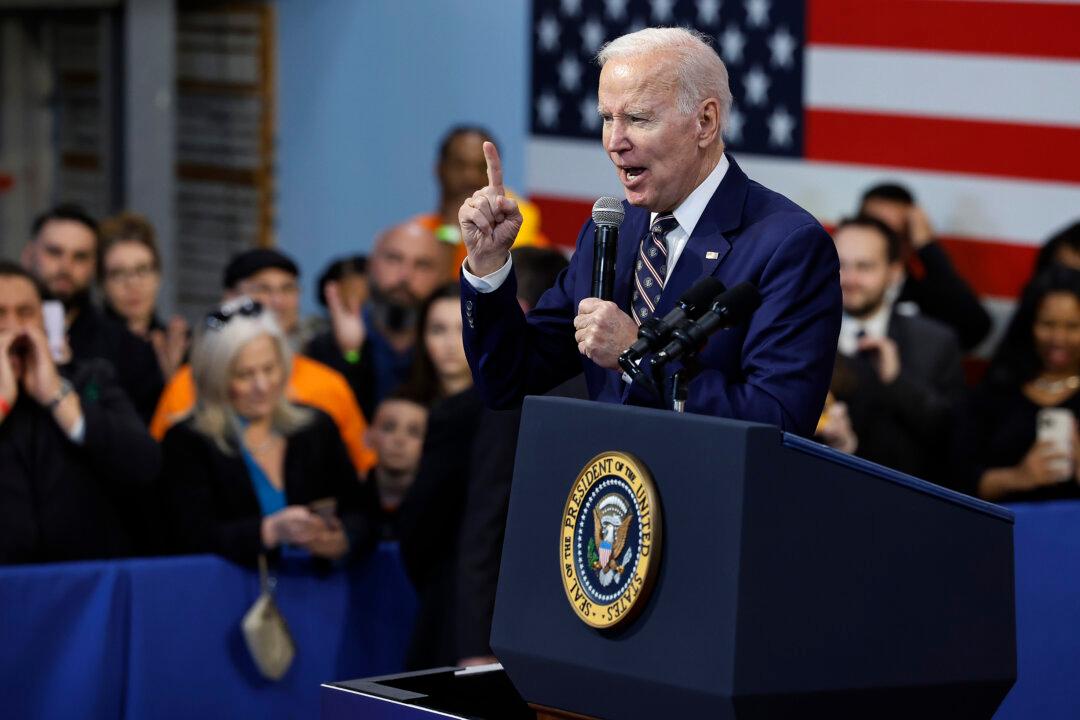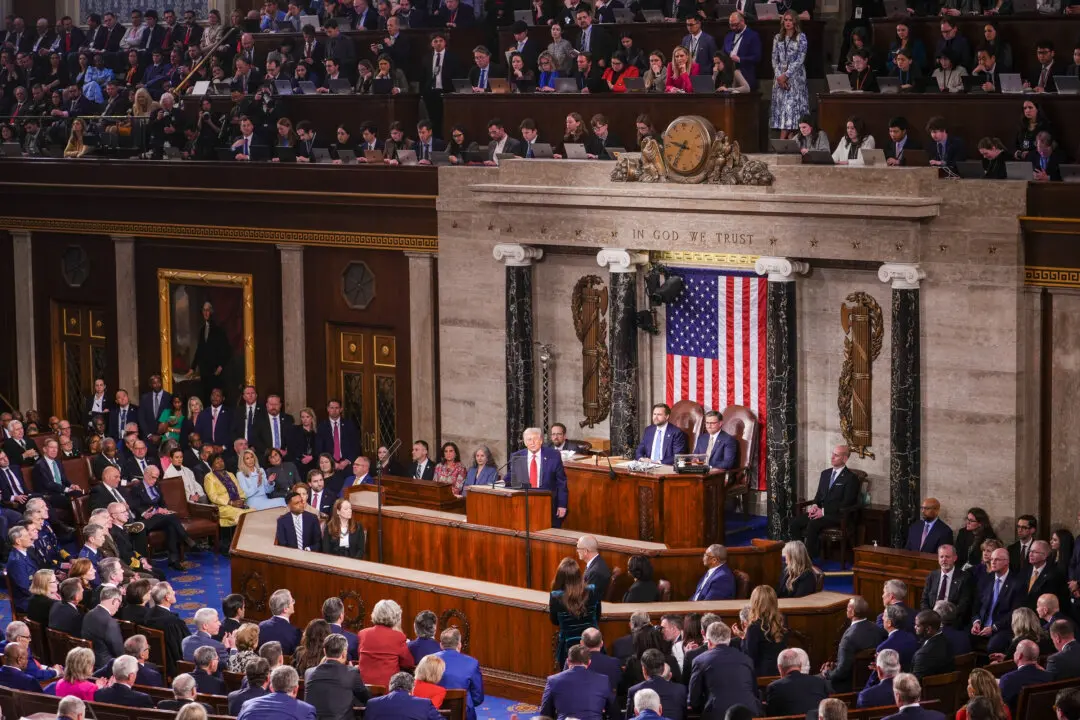President Joe Biden revealed the third budget of his presidency, proposing to spend $6.8 trillion and raise taxes by approximately $5 trillion. Despite being promoted as a deficit-reducing plan, the White House forecasts trillions in budget shortfalls over the next decade.
According to the administration’s projections (pdf), the U.S. government would record $17.055 trillion in federal deficits by 2023. This includes a $1.8646 gap in the fiscal year 2024 budget, representing 6.8 percent of GDP.





